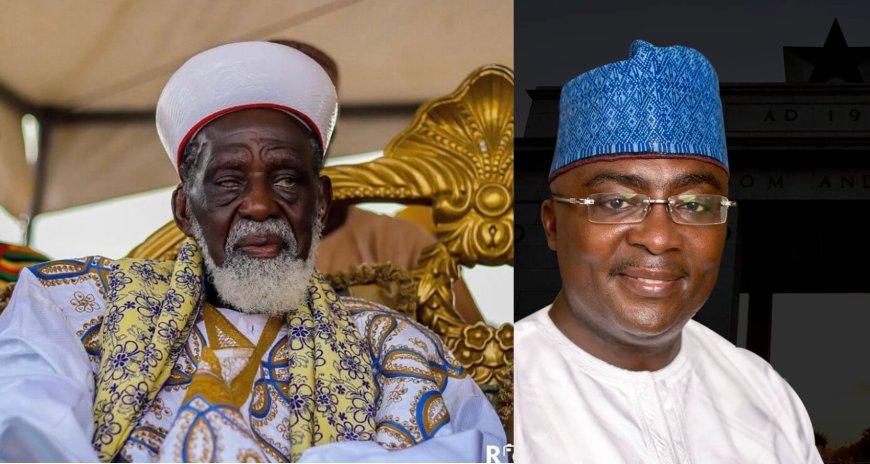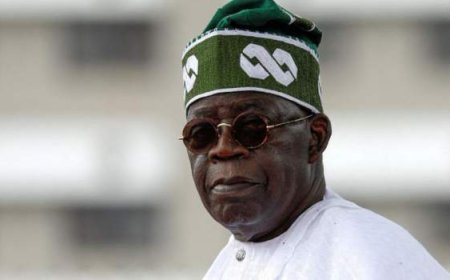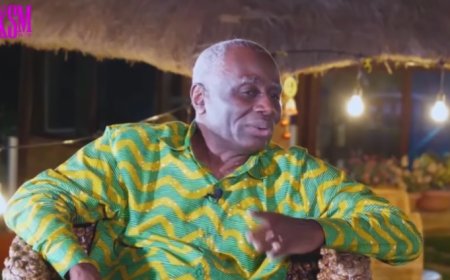Reevaluating the Timing of Eid Al Fitr Holiday: An Urgent Call to the Office of the Chief Imam and Vice President of Ghana
Explore the controversy surrounding the timing of the Eid Al Fitr holiday in Ghana and the implications for the Muslim community. Delve into the role of the Office of the Chief Imam and Vice President in addressing this issue.

Reevaluating the Timing of Eid Al Fitr Holiday: An Urgent Call to the Office of the Chief Imam and Vice President of Ghana
Introduction:
Eid Al Fitr, the festival marking the end of Ramadan, holds deep significance for Muslims globally, including the devout population in Ghana. It is a time of spiritual reflection, communal celebration, and acts of charity. Central to the observance of Eid Al Fitr is the congregational prayer held on the morning of the first day of Shawwal, the month following Ramadan. Traditionally, governments across the Muslim world declare a public holiday on the day of Eid Al Fitr, allowing Muslims to fully participate in the festivities and religious observances. However, recent deviations from this established practice in Ghana have sparked controversy and raised questions about the alignment of state policies with religious traditions.
The Issue:
In a departure from established norms, the Ghanaian government has opted to grant the holiday for Eid Al Fitr on the second day of the Eid prayers instead of the actual day of the prayer. This decision disrupts the customary observance of Eid Al Fitr and presents logistical challenges for the Muslim community. While the intention may have been to accommodate various considerations, including the need for workforce planning and economic stability, the unintended consequence is a dilution of the religious significance of Eid Al Fitr.
The Role of the Office of the Chief Imam:
The Office of the Chief Imam holds a revered position within the Muslim community in Ghana. It serves as a beacon of guidance, unity, and advocacy for the rights and interests of Muslims across the country. Given its influential stature, the Office of the Chief Imam plays a pivotal role in shaping public discourse on matters of religious significance, including the scheduling of holidays such as Eid Al Fitr.
In light of the recent deviation in holiday scheduling, it is incumbent upon the Office of the Chief Imam to voice the concerns of the Muslim community and engage in constructive dialogue with government authorities. Has the Chief Imam formally addressed this issue and articulated the community's grievances? What proactive steps has the Office taken to safeguard the religious rights and freedoms of Muslims in Ghana?
Moreover, the Office of the Chief Imam has a responsibility to foster collaboration and understanding between religious leaders and government officials, including Vice President Mahamudu Bawumia. By advocating for the preservation of religious traditions and values, the Chief Imam can ensure that the concerns of the Muslim community are heard and respected at the highest levels of governance.
The Significance of Eid Al Fitr:
Eid Al Fitr is not merely a religious observance; it is a time-honored tradition that fosters unity, compassion, and solidarity within the Muslim ummah. The congregational prayer held on the morning of Eid Al Fitr symbolizes the collective culmination of a month-long journey of fasting, prayer, and self-reflection. It is a moment of spiritual renewal and communal rejoicing, wherein Muslims come together to offer gratitude to the Almighty and seek forgiveness for past transgressions.
However, the decision to schedule the holiday for the second day of Eid Al Fitr prayer threatens to diminish the sanctity and significance of this auspicious occasion. By separating the holiday from the actual day of the prayer, the government inadvertently undermines the religious observance of Eid Al Fitr and deprives Muslims of the opportunity to fully immerse themselves in the spiritual and communal aspects of the festival.
The Call to Action:
In light of the concerns raised by the Muslim community, it is imperative for the Office of the Chief Imam and Vice President Mahamudu Bawumia to reevaluate the timing of the Eid Al Fitr holiday and reconsider the decision to schedule it for the second day of prayer. This necessitates a concerted effort to bridge the gap between religious traditions and state policies, thereby ensuring the preservation of religious rights and freedoms for all citizens.
Dialogue and collaboration between religious leaders and government officials are essential in addressing this issue and fostering mutual understanding and respect. By engaging in meaningful discourse and seeking common ground, the Office of the Chief Imam and Vice President Mahamudu Bawumia can work together to uphold the religious values and principles enshrined in the Ghanaian Constitution.
Conclusion:
The decision to schedule the Eid Al Fitr holiday for the second day of prayer instead of the actual day undermines the religious significance of the occasion and poses challenges to the observance of this important festival. It is incumbent upon the Office of the Chief Imam and Vice President Mahamudu Bawumia to heed the concerns of the Muslim community and take decisive action to address this issue. Only through collaborative efforts and mutual respect can we ensure that Eid Al Fitr is celebrated with the reverence and devotion it deserves, thereby upholding the religious rights and freedoms of all citizens in Ghana.
What's Your Reaction?






































































